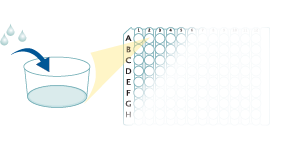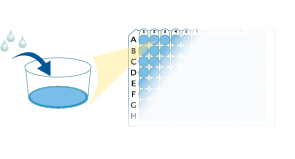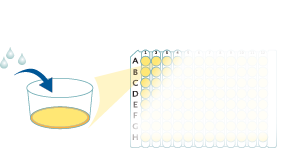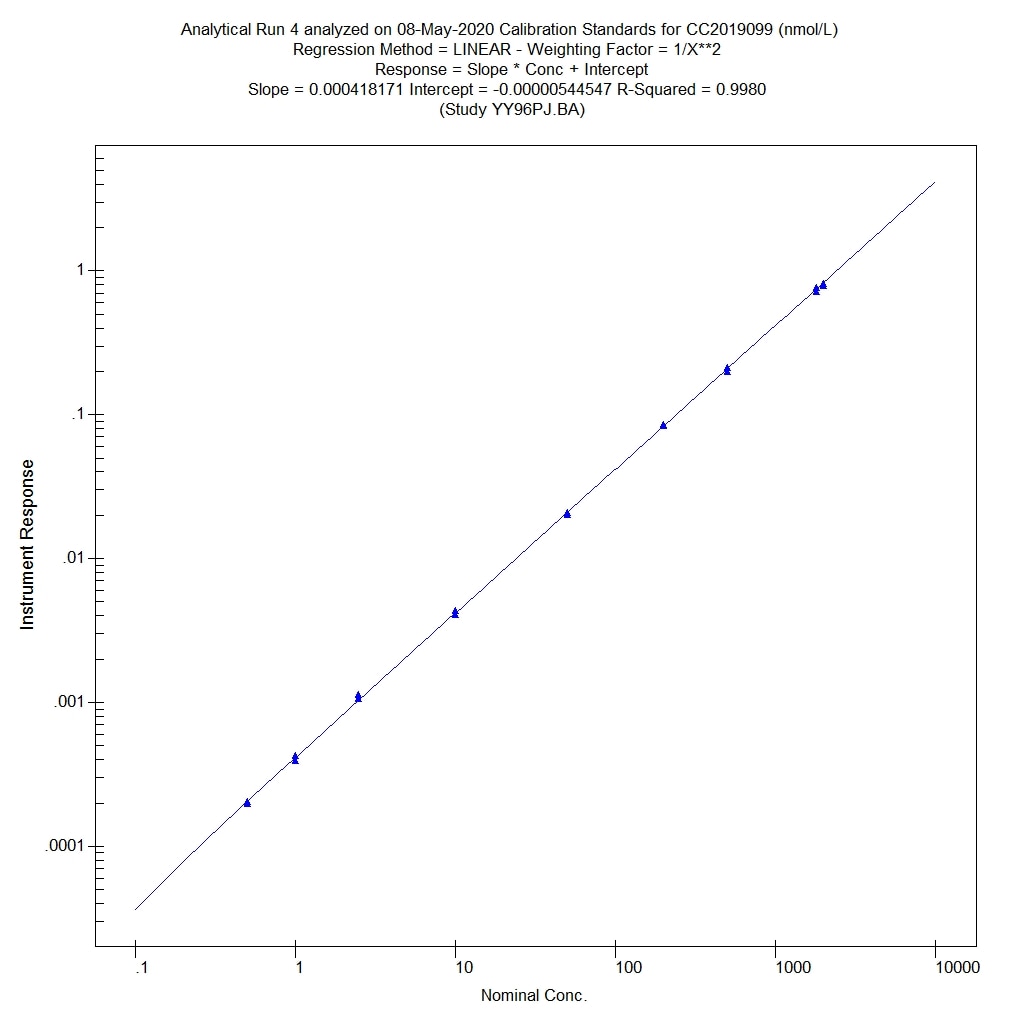Rhesus Macaque TNF-alpha Quantikine ELISA Kit Summary
Product Summary
Precision
Cell Culture Supernates, Serum, EDTA Plasma
| Intra-Assay Precision | Inter-Assay Precision | |||||
|---|---|---|---|---|---|---|
| Sample | 1 | 2 | 3 | 1 | 2 | 3 |
| n | 20 | 20 | 20 | 20 | 20 | 20 |
| Mean (pg/mL) | 61 | 123 | 492 | 56 | 111 | 465 |
| Standard Deviation | 3.6 | 7.4 | 35.7 | 5.6 | 7.2 | 41.8 |
| CV% | 5.9 | 6 | 7.3 | 10 | 6.5 | 9 |
Recovery
The recovery of rhesus macaque TNF-alpha spiked to three levels throughout the range of the assay in various matrices was evaluated.
| Sample Type | Average % Recovery | Range % |
|---|---|---|
| Cell Culture Supernates (n=4) | 110 | 104-120 |
| EDTA Plasma (n=3) | 94 | 89-99 |
| Serum (n=4) | 98 | 90-109 |
Linearity
Scientific Data
Product Datasheets
Preparation and Storage
Background: TNF-alpha
Tumor necrosis factor alpha (TNF-α), also known as cachectin and TNFSF2, is the prototypic ligand of the TNF superfamily. It is a pleiotropic molecule that plays a central role in inflammation, apoptosis, and immune system development. TNF-α is produced by a wide variety of immune and epithelial cell types. Human TNF-α consists of a 35 amino acid (aa) cytoplasmic domain, a 21 aa transmembrane segment, and a 177 aa extracellular domain (ECD). Within the ECD, human TNF-α shares 97% aa sequence identity with rhesus and 71% - 92% with bovine, canine, cotton rat, equine, feline, mouse, porcine, and rat TNF-α. The 26 kDa type 2 transmembrane protein is assembled intracellularly to form a noncovalently linked homotrimer. Ligation of this complex induces reverse signaling that promotes lymphocyte costimulation but diminishes monocyte responsiveness.
Cleavage of membrane bound TNF-α by TACE/ADAM17 releases a 55 kDa soluble trimeric form of TNF-α. TNF-α trimers bind the ubiquitous TNF RI and the hematopoietic cell-restricted TNF RII, both of which are also expressed as homotrimers. TNF-α regulates lymphoid tissue development through control of apoptosis. It also promotes inflammatory responses by inducing the activation of vascular endothelial cells and macrophages. TNF-α is a key cytokine in the development of several inflammatory disorders. It contributes to the development of type 2 diabetes through its effects on insulin resistance and fatty acid metabolism.
Assay Procedure
Refer to the product- Prepare all reagents, standard dilutions, and samples as directed in the product insert.
- Remove excess microplate strips from the plate frame, return them to the foil pouch containing the desiccant pack, and reseal.
- Add 50 µL of Assay Diluent to each well.
- Add 50 µL of Standard, Control, or sample to each well. Cover with a plate sealer, and incubate at room temperature for 2 hours.
- Aspirate each well and wash, repeating the process 4 times for a total of 5 washes.
- Add 100 µL of Conjugate to each well. Cover with a new plate sealer, and incubate at room temperature for 2 hours.
- Aspirate and wash 5 times.
- Add 100 µL Substrate Solution to each well. Incubate at room temperature for 30 minutes. PROTECT FROM LIGHT.
- Add 100 µL of Stop Solution to each well. Read at 450 nm within 30 minutes. Set wavelength correction to 540 nm or 570 nm.





FAQs
-
Assay Diluent RD1-63 contains visible precipitate. Is this acceptable to use?
A small amount of precipitate is expected and acceptable in Assay Diluent RD1-63. Variability has been observed between vials and diluent lots. It may not fully resolubilize but this will not impact assay performance. It is not recommended to filter the precipitate.
Reviews for Rhesus Macaque TNF-alpha Quantikine ELISA Kit
Average Rating: 5 (Based on 1 Review)
Have you used Rhesus Macaque TNF-alpha Quantikine ELISA Kit?
Submit a review and receive an Amazon gift card.
$25/€18/£15/$25CAN/¥75 Yuan/¥2500 Yen for a review with an image
$10/€7/£6/$10 CAD/¥70 Yuan/¥1110 Yen for a review without an image
Filter by:

















